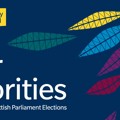Public Policy highlights - February 2021
The Society’s policy committees analyse and respond to proposed changes in the law. Key pieces of work completed in February are highlighted below. Read more in the research and policy section of our website.
European Charter of Local Self Government (Incorporation) (Scotland) Bill
We produced a stage 1 briefing on the European Charter of Local Self Government (Incorporation) (Scotland) Bill, which will incorporate into domestic law in Scotland the European Charter of Local Self Government. As the Explanatory Notes point out the UK has a dualist legal system and domestic and international law are distinct and separate from one another. We agree with the assessment that to give public international law the same legal authority as domestic law it must be incorporated into domestic law.
In our briefing we note that a reporting cycle of once in every five years may be too long to provide proper scrutiny; and that there may be an impact on the budgeting of local authorities if finance is to be set aside in anticipation of raising petitions for judicial review. We asked why the Human Rights Act process for dealing with remedial orders has not been adopted in this bill; and we note that the time period set out for implementation may be too short if local authorities and Scottish Ministers have to review their practices, rules and regulations and undertake staff training in order to adapt to the Charter's implementation.
Strengthening Scottish Charity Law
The Charity Law sub-committee responded to the Scottish Government’s Strengthening Scottish Charity Law Survey. The response was broadly supportive of proposals to increase transparency and accountability in areas including publishing annual reports and accounts, establishing an internal and external register of charity trustees, and requiring all charities in the Scottish Charity Register to have an ongoing territorial connection with Scotland. The response also reiterated calls made by the sub-committee in 2019 for a comprehensive review of the Charities and Trustee Investment (Scotland) Act 2005.
This link to one of the areas we highlighted in our recent publication Our priorities for the 2021 Scottish Parliament elections, namely calling for a review of charity law, which hasn’t been subject to significant legislation since 2005.
Future UK-EU relations: energy, environment and health
Our Environmental Law sub-committee responded to the House of Lords’ EU Environment Sub-Committee’s call for evidence on Future UK-EU relations. The committee highlighted that the effect of the provisions of the UK-EU Trade and Cooperation Agreement (TCA) generally on environmental protection and climate standards remains somewhat uncertain. It was noted that while the preamble to the TCA acknowledges the parties' commitment to high environmental standards and to tackling climate change and the TCA includes certain protections based on the recognised environmental principles, there is uncertainty as to what extent regression of standards would be sufficient to trigger the formal procedures for rebalancing and dispute settlement under the Agreement.
It was noted that it is not yet clear whether, and if so, to what extent, the devolved administrations or legislatures will play a role in policy- and decision-making relating to the TCA and in the governance structures under the TCA, including in relation to dispute resolution.
Covid-19 legislation: next steps in 2021
A number of committees contributed to a response to the Scottish Parliament’s COVID-19 Committee’s call for evidence on Covid-19 legislation: next steps in 2021. Our response set out the legislative framework relating to coronavirus and comments relating to Parliamentary scrutiny and the rule of law, respect for human rights, devolution, and other public health legislation. It recommended a review of the law relating to health emergencies, suggested that the four Governments consider collaboration on the creation of a Standing Advisory Committee on Pandemics, and also suggested a quadripartite parliamentary group to share experience, best practice and knowledge about legislating in a pandemic.
The response also discussed equality and human rights safeguards and priorities to inform the Scottish Government’s strategy and response to Covid-19 in 2021.
Independent Review of Complaints Handling, Investigations and Misconduct Issues in Relation to Policing
The Criminal Law committee responded to the Call for Evidence on Dame Elish Angiolini’s Final Report of the Independent Review of Complaints Handling, Investigations and Misconduct Issues in Relation to Policing.
The Report is a very thorough and wide-ranging review. It highlights some troubling issues which have been raised in various cases, including scrutiny of allegations of police assault and police complaints. This stresses the need for thorough, speedy and independent investigations conducted in the public interest to which the Report was directed.
We supported many of the recommendations including the need to streamline and clarify the complaints process, identify clearly who is responsible for investigating complaints against senior officers, ensure that the Police Investigation and Review Commissioner has effective powers, and improve the investigation of deaths in police custody.
Licensing of Static Homes with Permanent Residents
The Licensing Law sub-committee responded to the Scottish Parliament’s Local Government and Communities Committee’s Call for Views on the Licensing of Static Homes with Permanent Residents, which considered the effectiveness of the current licensing system for static mobile homes parks and how well it protects permanent residents, of which there are around 7000 across 100 sites. There is legislation setting out the framework for the licensing of residential mobile home parks in Scotland which presents a system that is both unwieldy and complicated for all to understand.
Our view was that current licensing regime was not fit for purpose. We recommended that a working group be set up to report on the current practices and to make recommendations for developing consolidated legislation to streamline the system and make it more manageable.
Digital trade and data
The Trade Policy Working Group and Privacy Law sub-committee responded to a House of Commons International Trade Committee inquiry into digital trade and data. The inquiry focused on a number of areas including: digital trade and data provisions in Free Trade Agreements, concerns around the security and privacy of data, the environmental impact of digital trade and relevant legal frameworks. The Society's response highlighted the symbiotic relationship the legal sector has with digital trade as with most other sectors and detailed some of the challenges and opportunities the expansion of digital trade and the ability to provide goods and services remotely presents, particularly given accelerated rate of remote working as a result of the pandemic.

Our 2021 Election Priorities
Our priorities for the 2021 Scottish Parliament elections

Influencing the law and policy
One of the main functions of our policy team, along with our network of volunteers, is to analyse and respond to proposed changes in the law.
